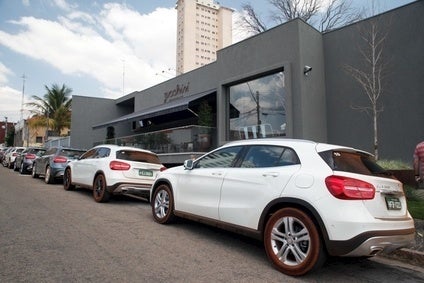‘Car sales in Europe off to a strong start’ is not a headline we’ve been accustomed to writing much in the last few years but we did, finally, manage it today.
“The January sales result will please many in Europe’s automotive sector who are hoping for the upturn this year to gather some momentum. Continued car market growth comes in spite of wider uncertainties for the European economy being generated by the EU’s ongoing crisis with Greece and its debt position following the election of a new anti-austerity government there. One bright note though. Which national car market in Western Europe achieved the highest year-on-year growth in January (a whopping 47.1%)? Greece.”
Let’s hope it’s not a one month, flash in the pan before everything goes pear-shaped again. This news came a day after the final act in a massive restructuring at Ford, as a direct result of said recent pear-shaped European market. Work is done on overhauling the Valencia plant in Spain as a key hub to build six, mostly larger models with 80% of output for export. For the Spaniards, there’s been a EUR2.6bn spend on lots of new kit – presses, body shop, paint, assembly – and there’s 3,000 new jobs but let’s not forget the circa-4,500 direct posts lost with last year’s closure of Genk in Belgium; I wonder how many Belgians from that plant are now enjoying a new life under Ford’s Spanish sun? The rationalisation was necessary to take out excess capacity the market was never likely to mop up again but let’s not overlook the human toll.
Financial results this week had a common theme – mostly to expectations – with recall costs weighing down the numbers at General Motors and rather more heavily at beleaguered airbag maker Takata. On the other hand, a rather stellar result at Daimler shows what happens when you launch lots of new products buyers really like. Ford also enjoyed a decent 2014 and one of our analysts put the results under his microscope for a reality check.
Speaking of Daimler, or rather, Mercedes, its initial late-1990s car building foray into Brazil wasn’t too successful because, due to a market downturn, buyers there didn’t fancy nearly as many generation A-class hatchbacks (70,000 a year) as a shiny new plant in Juis de Fora had been built for. After using up some capacity with various car assembly projects for other markets, the plant eventually was turned over to commercial vehicles like Actros heavy trucks with a lot more success. Now comes a new (third) plant, for cars, which will start with the C-class and GLA which are currently imported.
Having to issue a ‘stop sale’ order just after you’ve launched a car is bad news for any automaker but it happened to Suzuki here in the UK. Just as favourable reports were rolling in from media launches in Europe and England, the serious road testers at two magazines put a Celerio (journalists are calling it the Celery) and then a second through their tough brake test. The stoppers failed. Cue an urgent instruction to dealers, engineers on planes from Japan, the whole bit. Hopefully they’ll get it sorted soon.
Have a nice weekend.
Graeme Roberts, Deputy Editor, just-auto.com







